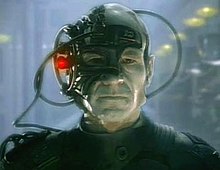1) The Orchardist by Amanda Coplin.
An astonishingly mature debut novel, by a writer who knows her subject well, as her grandfather owned an orchard in Washington state. I normally devour two to three novels a week, but I slowed my reading pace to savour Coplin’s prose. It’s perfect storytelling, with a believable plot and strong characterisation that binds you to their fate.
A memorable read, it’s sure to be adapted into a film.
2) Almost Everything: Notes On Hope by Anne Lamott.
Anne Lamott is best-known to writers for her Bird By Bird, which is one of the best guides to the writing life. She’s an intimate writer, drawing you in to contemplate life’s predicaments by the use of self-deprecating humour. Don’t be put off by her religious conviction, which is never overbearing or intolerant. Her common-sense approach to tackling big issues is candid and insightful. How can you not like someone who starts a chapter titled ‘Writing’ with “So, writing. What a bitch.”

3) Cassandra Darke by Posie Simmonds
Published in 2014, this graphic novel is a treat to view, as it’s so well-drawn, and the story is compelling and grown-up. If you’ve previously dismissed graphic novels as glorified comics, get your hand on this story, which will grip you and change your mind.

4) The Book Thief by Markus Zusak
Masterful story-telling. Set in Germany at the time of the rise of the Nazis, it proves how reading is vital as an expression of free thought.

5) Eleanor Oliphant Is Completely Fine, by Gail Honeyman
I resisted reading this best-selling novel, wary of the hype, but it deserves its success. It’s one of the most skilful layerings of character I’ve read, drawing the reader in to side with socially inept Eleanor. That a happy ending is resisted adds to the story’s power.

6) Dark Matter, by Michelle Paver. After enjoying Wakenhyrst, I tackled Dark Matter. There’s something about polar landscapes that suits ghost stories, where the protagonist’s overactive imagination combines with an ineffable landscape to create dread

7) Tombland by C.J. Sansom.
The seventh tale featuring Tudor lawyer Matthew Shardlake who negotiates a troubled period where violence and treachery stalk the nation. A time in British history that continues to be glossed-over, what with the population rising up against the oppressive ruling class, it’s not hard to imagine the same thing happening today.

8) The Border by Don Winslow.
Sprawling, violent and scary as Winslow explains how the drug trade has infiltrated the highest echelons of power. The third story in Winslow’s trilogy about the drug war, it’s not an easy read, but nobody does it better.

9) Reading art: art for book lovers by David Trigg
The perfect coffee table book for book lovers, a wonderful survey of paintings showing the power and joy of books.

10) The Book Of Dust: La Belle Sauvage & The Book Of Dust: The Secret Commonwealth by Philip Pullman.
These two books are mighty impressive ‘equals’ (as Pullman calls them) to the His Dark Materials trilogy. Wondrous and exciting writing that draws you into the fate of the two protagonists Lyra and Malcolm. More swearing and sexual activity than before, but Lyra is now a young woman, as rebellious as ever. The stories honour the reader’s intelligence and make astute comments on our troubled times.

12) The Wolf and the Watchman by Niklas Natt och Dag.
Well-researched and brutal, the story is set in 18th-century Stockholm, following the fates of several characters whose lives intersect in unexpected ways. The book’s been criticised for dwelling on violence, but there’s a morbid fascination created by the darkness of the tale. It’s sure to be adapted into a film or television drama.
13) Homesick: Why I Live In A Shed by Catrina Davies & Lowborn by Kerry Hudson.
Thankfully, there’s a resurgence of working-class writers. Two of the best are Catrina Davies and Kerry Hudson, both of whom grew up poor looking for ways to survive, with writing being their redemption. They tell it like it is, they’re real. Fight the Power!

What books have you enjoyed reading this year? They don’t have to be recent—old favourites that you’ve revisited will do.














